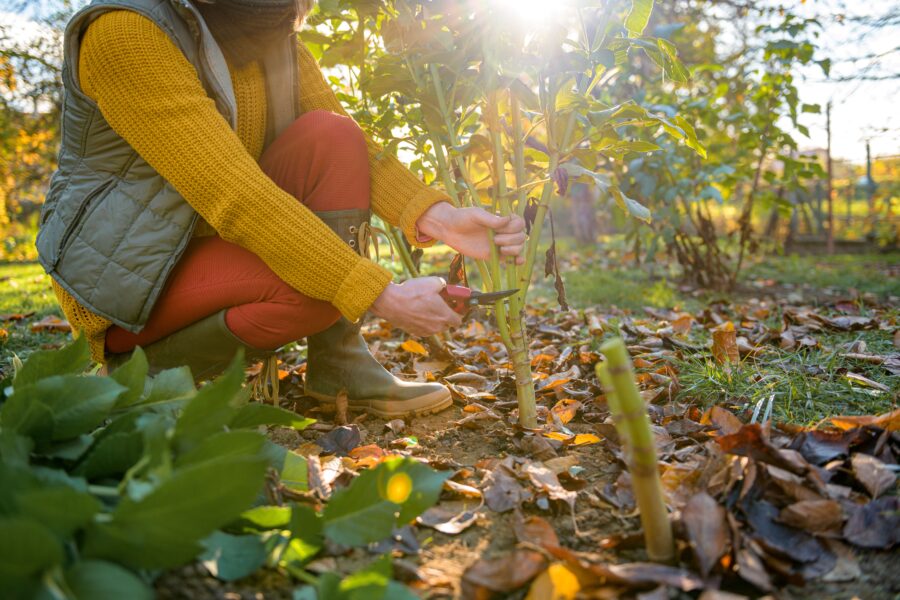Winter Gardening Tips
While winter may seem like a quiet time in your garden, it still needs maintenance and TLC. Winters in Australia vary greatly depending on where you are. Some regions experience mild weather, and others face cooler temperatures and frost. Regardless of your location, a bit of preparation and care can ensure your garden stays healthy and ready to bloom come spring. Here are some essential gardening tips for winter:
Preparing for winter
Clean up
Start by clearing away old leaves, weeds, and any debris that’s built up over autumn. These can harbour pests and diseases and clearing them now will prevent problems later. Pruning dead or diseased branches from shrubs and trees will also encourage healthy growth in the warmer months.
Mulch to protect the soil
Mulching is a vital step in garden maintenance during winter. A layer of mulch will help insulate plant roots, retain moisture, and prevent weeds from taking over. Organic mulches like straw or bark are ideal as they break down over time, improving soil health.
Prune and tidy up
Winter is the perfect time to prune perennials, fruit trees, and roses. For fruit trees, cut back any dead or overcrowded branches to encourage better airflow and sunlight when growth returns. With roses and other perennials, remove spent flowers and shape them for the season ahead.
Winter planting
Winter veggies
For those in mild climates, winter gardening is an opportunity to cultivate nutritious vegetables. Think leafy greens like spinach, kale, and silverbeet, root veggies such as carrots and parsnips, and even cabbage or broccoli. If frost is a challenge in your area, consider using frost cloths or planting in raised garden beds for added protection.
Winter flowers
Brighten up the colder months with winter-blooming flowers like pansies, violas, and snapdragons. These hardy varieties thrive in cooler climates and add a splash of colour to your garden.
Incorporate herbs
Herbs such as parsley, coriander, and chives do well in winter and are ideal for planting in pots or smaller garden beds. Grow them near the kitchen for easy access or a touch of green indoors.
Winter lawn and soil care
Aerate your soil
Compacted soil can limit hydration, even during winter rains. Use a garden fork or specialised aeration tool to loosen the soil around your lawn and garden beds. This will improve drainage and ensure your plants receive the water they need.
Fertilise
Focus on using slow-release, low-nitrogen fertilisers during winter. These encourage steady growth without causing an unseasonal growth spurt that could be damaged by frost. Compost or organic matter is a great winter feed for improving soil quality.
Keep your lawn trimmed
Although grass grows slower in winter, mowing your lawn occasionally will keep it tidy. Avoid cutting it too short as this can make it more susceptible to frost and weeds.
Protect your winter garden
Watch for frost
For areas prone to frost, protect delicate plants with covers or move potted plants to sheltered spots. Using a layer of straw or hessian over garden beds can also provide some insulation during frosty nights.
Water wisely
Plants generally need less water during winter, but don’t neglect them entirely. Reduce your watering schedule and ensure you water early in the day, so the moisture has time to soak in before night-time temperatures drop. Check pots and raised garden beds more frequently as these can dry out faster.
Check for pests
Certain pests remain active even in winter. Keep an eye out for snails, slugs, and aphids, particularly on herbaceous plants or winter crops. Set up natural deterrents or traps to manage pests without chemicals.
Future-proof your garden during winter
Winter gardening isn’t just about maintenance but also about preparing for the future.
- Plan your spring garden: Use the downtime to map out any changes you’d like to make for spring, whether that’s planting new flowers, adding raised beds, or starting a compost bin.
- Sharpen your tools: Winter is an excellent time to clean, repair, and sharpen your garden tools so they’re ready for heavy use later.
- Check irrigation systems: Test and perform maintenance on irrigation systems to ensure they’re functioning correctly.
Enjoy your winter garden
Winter gardening in Australia offers the perfect chance to slow down, reflect, and prepare for the vibrant growth of spring. By following these tips, you’ll keep your garden healthy, functional, and thriving through the cooler months.
Happy gardening!
Check out our other gardening tips here:











